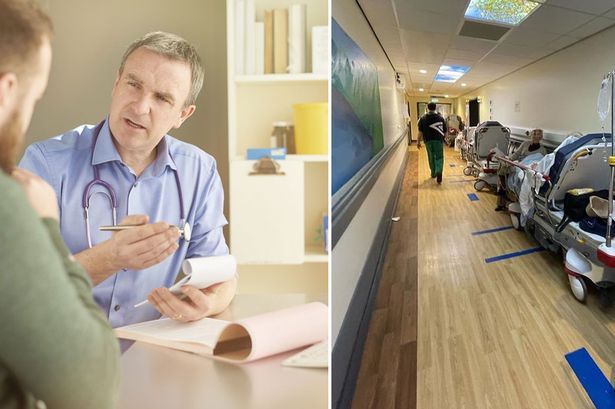The current state of the National Health Service (NHS) in the UK is characterized by a critical strain on Accident and Emergency (A&E) departments, marked by long wait times and overwhelmed resources. While directing additional funding to A&E might seem like an immediate solution to address the visible crisis, a more sustainable and effective approach lies in prioritizing preventative healthcare and community-based services. This involves shifting the focus from reactive, emergency-based care to proactive measures that promote health and well-being, ultimately reducing the burden on hospitals and improving overall population health outcomes. Investing in upstream interventions, such as public health initiatives, primary care, and social care, will not only alleviate pressure on A&E but also address the root causes of ill health, fostering a more resilient and equitable healthcare system.
The prevailing emphasis on funneling resources primarily into struggling A&E departments represents a reactive and ultimately unsustainable approach to healthcare. While emergency care is undeniably crucial, focusing solely on this downstream component neglects the fundamental factors contributing to increased hospital admissions. The current crisis in A&E reflects a systemic issue within the NHS, characterized by inadequate funding for preventative care and community-based services. This neglect has led to a bottleneck effect, where individuals lacking access to timely and appropriate primary care end up resorting to A&E for even non-emergency medical needs. This influx of patients overwhelms A&E departments, exacerbating wait times and compromising the quality of care for those requiring immediate medical attention. A paradigm shift is necessary, prioritizing investment in the foundations of healthcare to address the underlying causes of ill health and prevent unnecessary hospitalizations.
A more strategic and effective approach to bolstering the NHS involves a significant investment in preventative healthcare measures. This encompasses a broad range of initiatives aimed at promoting healthy lifestyles and preventing the onset of chronic diseases. Public health campaigns targeting smoking cessation, healthy eating, and physical activity can significantly reduce the incidence of preventable illnesses. Early detection and intervention programs, such as cancer screenings and routine health check-ups, can identify potential health issues in their nascent stages, allowing for timely treatment and preventing their progression into more serious conditions requiring hospitalization. Furthermore, investing in mental health services and addressing social determinants of health, such as poverty and inadequate housing, can have a profound impact on overall health and well-being, reducing the demand on acute care services.
Strengthening primary care services is another crucial element in alleviating the burden on A&E departments. General practitioners (GPs) serve as the first point of contact for most patients, playing a pivotal role in managing chronic conditions, providing preventative care, and coordinating access to specialist services. Increased funding for GP surgeries, coupled with initiatives to recruit and retain more GPs, would ensure that patients have timely access to comprehensive primary care. This includes expanding the range of services offered in primary care settings, such as minor surgery, mental health support, and chronic disease management. Empowering GPs to provide more holistic care within the community reduces the need for hospital referrals, preventing unnecessary strain on A&E and improving patient outcomes.
Furthermore, investing in social care services is inextricably linked to the health and well-being of the population, particularly for vulnerable groups such as the elderly and individuals with disabilities. Adequate social care support enables individuals to maintain their independence and quality of life, reducing the risk of hospital admissions due to falls, infections, or complications arising from chronic conditions. This includes providing support with daily activities, such as bathing, dressing, and meal preparation, as well as access to community-based rehabilitation services. A well-funded and integrated social care system acts as a crucial safety net, preventing unnecessary hospitalizations and enabling individuals to remain in their homes and communities for as long as possible.
In conclusion, while addressing the immediate crisis in A&E is imperative, a truly sustainable solution demands a fundamental shift in the allocation of NHS resources. Rather than simply diverting more funding to struggling A&E departments, a more strategic and impactful approach involves investing in the foundations of healthcare: preventative care, community-based services, primary care, and social care. By addressing the root causes of ill health and promoting well-being, these upstream interventions will not only alleviate pressure on A&E but also improve overall population health outcomes, fostering a more resilient and equitable healthcare system for generations to come. This represents a long-term investment in the health and well-being of the nation, creating a healthier, more resilient population and reducing the long-term costs associated with managing chronic diseases and hospitalizations.














